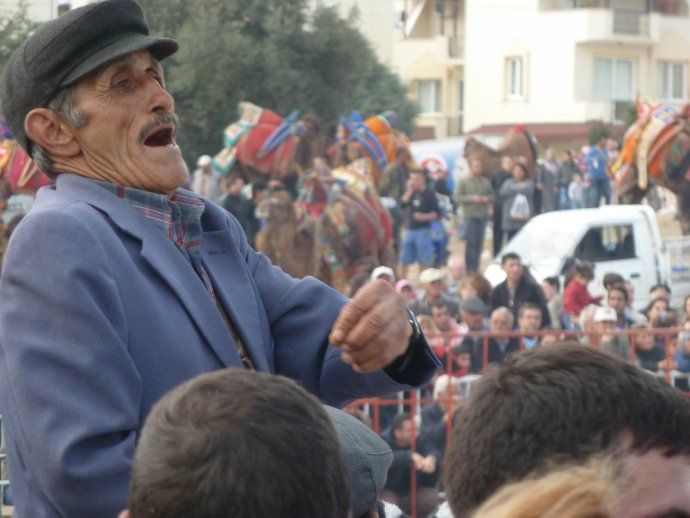
26 Sep Living in Turkey – Digital Nomad Destinations
Do you dream of escaping the daily grind for an online job that would allow you to live abroad somewhere cheap and sunny? In our digital nomad destinations series, we’re chatting to remote workers who’ve achieved this dream and now live in various corners of the world. This week Shane from The Working Traveller, who I finally met in Chiang Mai this year after five years of following his blog, talks about expat life in Turkey.
Living in Turkey – Shane’s story
In case you missed the first installment of our digital nomad destination series, check out what it’s like to live in rural Romania with Alyson from World Travel Family. Here’s what Shane has to say about working online and life in Turkey with his partner Deirdre.
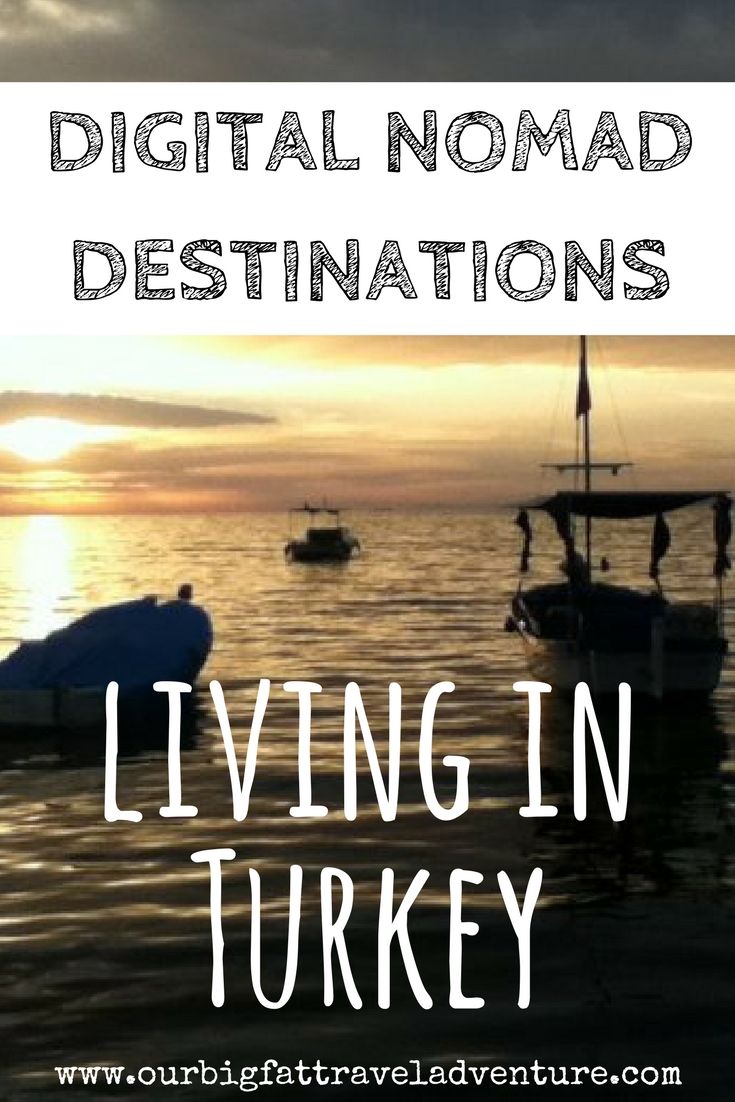
How did you end up as a digital nomad based in Turkey?
It’s a long story involving family discontent with storing our possessions while we travel, a cancelled trip to Central America, developing a taste for Middle Eastern food on a visit to Egypt, not particularly liking Bulgaria, and my mother tipping us off after buying a property in the same town. Long story short, it was the place we liked the most out of the very short list of places we could actually afford.
What part of the country do you live in and where are the most common areas for expats to live?
We live in Didim, a small town on the Aegean, in the south west of the country. Holidaymakers will know the town better as Altinkum, the name of the resort. It’s a popular place for expats, as are nearby Kusadasi and Bodrum. Antalya and the Med coastal resorts also attract large numbers of foreign house buyers.
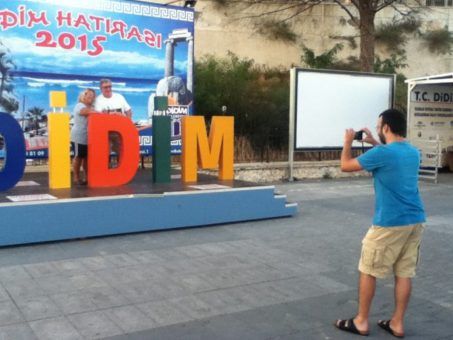
How expensive are rental and house prices? What was the legal process like for buying a property in Turkey?
The legal process was appalling when we bought. Citizens of certain countries, including the UK, can buy property in their own names provided it is not located in military and security zones. What this means in practice is that the military sticks its oar into the buying process and does a check before allowing the title deeds to be issued. While a formality, it meant a delay between buying a home and officially owning it.
As you can imagine the system was open to abuse and we know several people who lost their homes or savings when they found the seller had loaded the house with debt or even sold it again. Normally it takes a few months but it took us about two years to actually get our deeds. By the time we were given the OK by the military the Tapu Office (who issue the deeds) was closed for corruption – the tip box should have been a clue – and then once finally reopened had to work its way through the backlog.
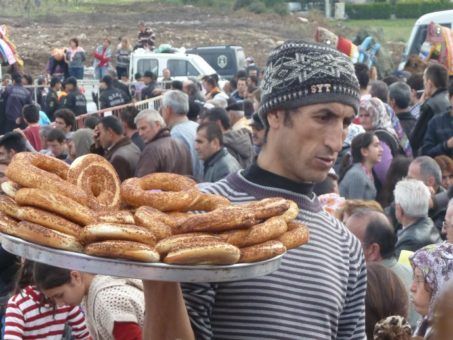
In the meantime, our estate agent died and the seller, his accountant, secured loans on our home to finance going into business for himself. Though we lived there, we refused to take official possession of our apartment until he removed the debt – which did eventually happen. We got lucky. I think the military search only takes a day now so things have improved.
Price wise, long term rentals are inexpensive but many landlords prefer holiday lets so finding one can be more difficult. The price we paid for our apartment was recouped in four years by no longer paying London rents and, despite a weak pound against most other currencies, properties are even cheaper now with the current exchange rate.
How do you make a living remotely, is it easy to do that in Turkey?
We have an inter-related group of websites and blogs that we use to encourage people to travel for longer by working abroad. The jobs are aimed mostly at backpackers and include teaching English, tourism jobs, childcare, working at summer camps in the USA, fruit picking, and working in ski resorts.
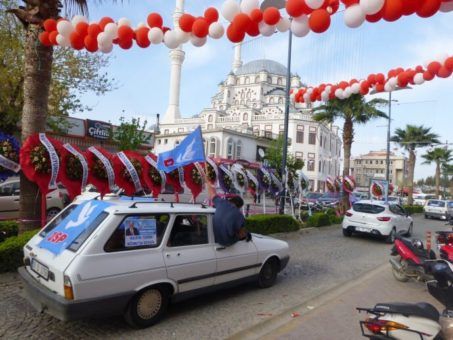
Our main site, that links all the others together, is PAYAway. There’s also two job boards, the Jobs Abroad Bulletin and the Overseas Job Centre, which also includes a guide and directory, plus our The Working Traveller blog and a niche site listing cheap ways to volunteer abroad.
It’s as easy or difficult to do what we do in Turkey as it is in any other part of the world.
What’s the internet like?
It does the job for the work we need to do, and is good enough to listen to the radio or watch a little TV too.
How about the cost of living and quality of life?
It is getting more expensive but is still fairly reasonable thanks to the exchange rate. Didim is one of the cheaper resorts and prices are lower here than elsewhere along the coast. Our annual council tax, for instance, is about £25, and we can easily eat out for under a fiver if we stick to Turkish food. Western food is a little more and we avoid eating at the seafront.
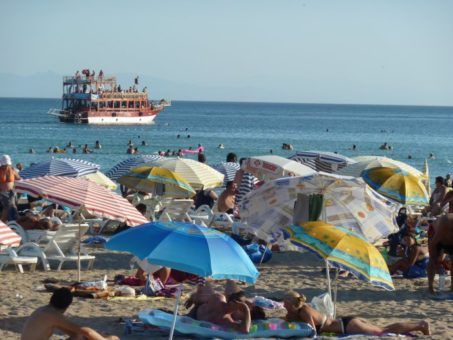
It’s the price of beer that is rising the quickest but is still far cheaper than just across the bay in Bodrum, for instance. Raki, the local firewater, and Turkish wine – which can be hit or miss – are fairly reasonable but imported spirits and wine are not. We live a normal life here, but take a ten-minute walk and we can be on the beach and in the middle of a buzzing tourist resort.
Are there many other expats and remote workers around?
There are a handful, mostly focused on writing or blogging about Turkey itself. We have spoken to a few via social media but have not actually met any of them though. In fact, aside from stalking this guy, yourselves are pretty much the only other travel bloggers we have ever met. The town has a lot of expats and people spending the summer here – mostly British, but with a smattering of other European nationals.
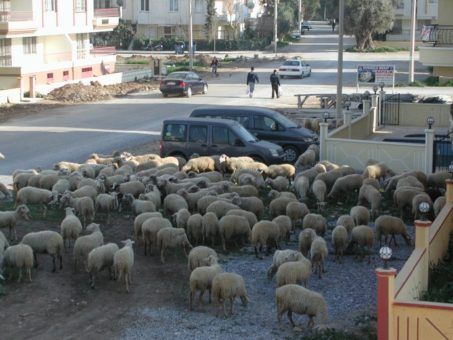
No co-working spaces, but plenty of sheep
Are there any co-working spaces?
No.
Have you learnt any Turkish and is it easy to get by without speaking any?
Our level of Turkish is appalling for the length of time we have lived in the country. We know enough to say we only speak a little Turkish, decipher the electricity bill and get stuff we want from shops without too much miming. Thankfully most of the foreigners living here are equally as bad or worse than us, so our attempts are appreciated. Also, many people here work in the tourist industry and prefer to practise their English to improve their job prospects.
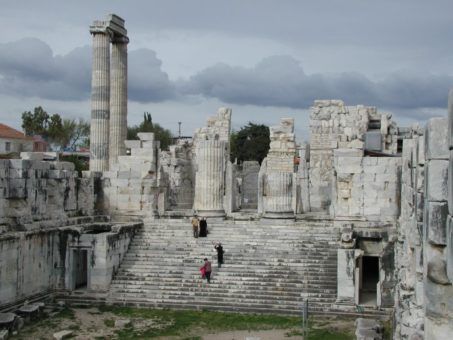
What’s the visa situation for digital nomads/expats like in Turkey?
Not as good as it once was. We relied on pleasant tourist visa runs by boat to nearby Greek Kos or Samos when we first moved here and still quite miss a ready excuse to sit around in a Greek square with a Mythos or pitcher of wine. This is no longer possible with Turkey now aping the Schengen 90 days in 180 rule.
We had a five-year residence permit but this expired last year and has been replaced with one year residence permits and additional hoops to jump through, including compulsory, but largely worthless, health insurance, proof of income and a visit from the police. We’ve yet to apply for this, thinking instead “screw that, we’re off to Thailand for a year or two.” We will decide what to do when we go back next year. Options include selling up and leaving for good, or keeping our apartment as a holiday home or as a base to return to between living elsewhere.
Do you feel welcomed and accepted in Turkey?
Yes, by our Turkish neighbours anyway. By the government, not so much. The Turks (and the Kurds – many people where we live come from the east of the country to work here) are naturally hospitable. We found this particularly so when we travelled in the east of the country, receiving plenty of offers to stop and chat over a glass of tea, or to take the prime seat in front of a restaurant’s TV to watch Demis Roussos – though I’ve no idea why the proprietor thought I wanted this.
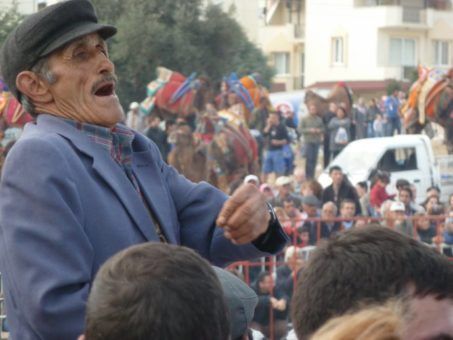
How’s the food?
Turkish food in the UK is best eaten drunk but here it is great – though it can get a bit samey after a while. Other regions of the country have their own specialities, which are worth seeking out. Our neighbours often gesture across to our balcony or knock on the door to share food so we get to try a few things rarely found in local restaurants.
If the food is offered on a plate the etiquette is to return it with food on it – though as we are pretty much can’t cook (me), won’t cook (Deirdre) we wouldn’t want to ruin friendships with our own cooking. I suspect our next door neighbour Fikret has been forbidden by his wife to give us any more meals because she doesn’t want him to get fat from the shop bought biscuits we give back to him.
The number of Brits in town make it easy to treat ourselves once in a while to an English breakfast but the Turkish are pretty unadventurous with international food so don’t expect to find a good Chinese, Thai, or Mexican restaurant here.
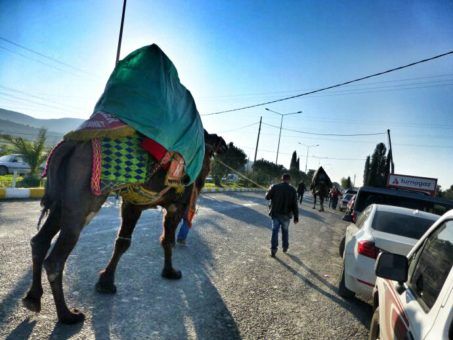
What are the best and worst things about living and working in Turkey?
It is very seasonal where we are. The summer is great and I love strolling down to a beachside bar for a beer, not wearing socks or seeing a cloud for six months, eating out and seeing friends and neighbours. Winter though is very quiet. It can get pretty cold and most people we know go back home to the UK, other parts of Europe or Turkey. However, having the beach to yourself on a sunny December day isn’t so bad.

What’s next for you? Do you see Turkey as a long-term base?
We don’t know at the moment. We have been here, on and off, for ten years when we thought it would be five. If we could live here for six months in the summer and go elsewhere for the winter that would be best, but the visa situation makes that less practical. Should the pound weaken against the lira we will probably move on; being compensated by getting more money from selling up.





Shane
Posted at 21:09h, 29 SeptemberThanks for the interview. Sadly the stubborn owner of that flock of sheep has finally accepted someone put a town in the way of his grazing land. It’s been a while since we last saw them go past our balcony.
Amy
Posted at 21:48h, 29 SeptemberYou’re welcome! Thanks for your answers, it’s a shame you don’t see the flock of sheep any more though. Enjoy Thailand 🙂
[email protected]
Posted at 07:49h, 28 OctoberHi, with my girlfriend we have been living already 2 months in Istanbul and Antalya. A lot of locals advice us to go on the Izmir side (Kas, Didim etc).
Do you have some DN experience in those locations ?
Amy
Posted at 12:04h, 29 OctoberHi Arthur, sorry, we don’t have any experience in those destinations. We’d love to visit one day though.
Robert
Posted at 11:54h, 31 Augusthi, we just did a month in Kas (camping) it was amazing, we are a nomad family and are leaving to go back to turkey for a year on Thursday – currently we use Georgia as a base.
Amy
Posted at 10:32h, 05 SeptemberGeorgia sounds like an interesting base; glad you enjoyed your camping trip too!